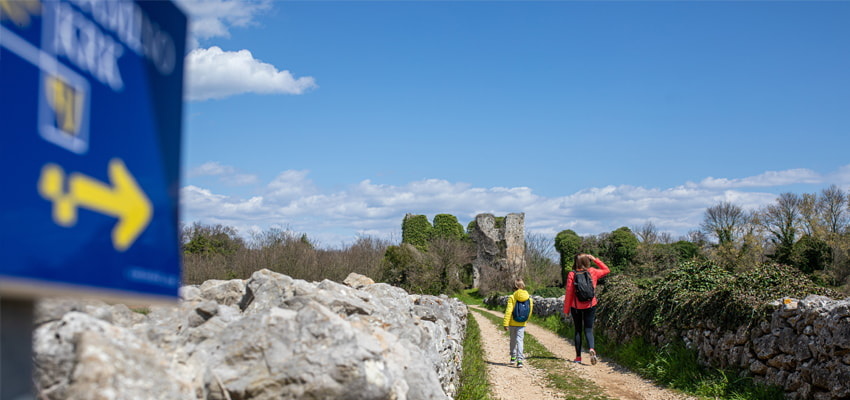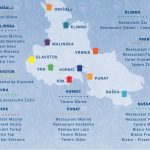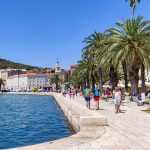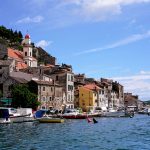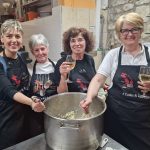The Camino Krk project, in competition with ten other initiatives from different parts of the world, in the category of Rural / Rural Areas and Biodiversity (Countryside and Biodiversity), as one of the nine set categories, is positioned in third place, reports HrTurizam.hr.
This year, the evaluation of projects received in the public call was conducted by three independent judges, giving them grades that are then added up, so the initiative with the highest score wins in its category. Although Camino Krk did not win, it was highly rated, which is a great success, according to the Tourist Board of the City of Krk, adding that they will be reminded of the certificate received in recognition of commitment to sustainable practices and implementation of environmentally friendly business model.
“First of all, I must point out that all island tourist boards have made a significant contribution to the development of the Camino Krk project in terms of a new and innovative tourist product. In uncertain pandemic circumstances, after we defined the project in cooperation with the Brotherhood of St. Jacob, we decided to invest significantly in its further development. Therefore, this year Camino Krk was the focus of all tourist boards, which means that significant funds were invested in marking the entire route, involving stakeholders, creating promotional materials, and strong digital promotion,” said Ivana Kovačić, director of the Tourist Board of Krk.
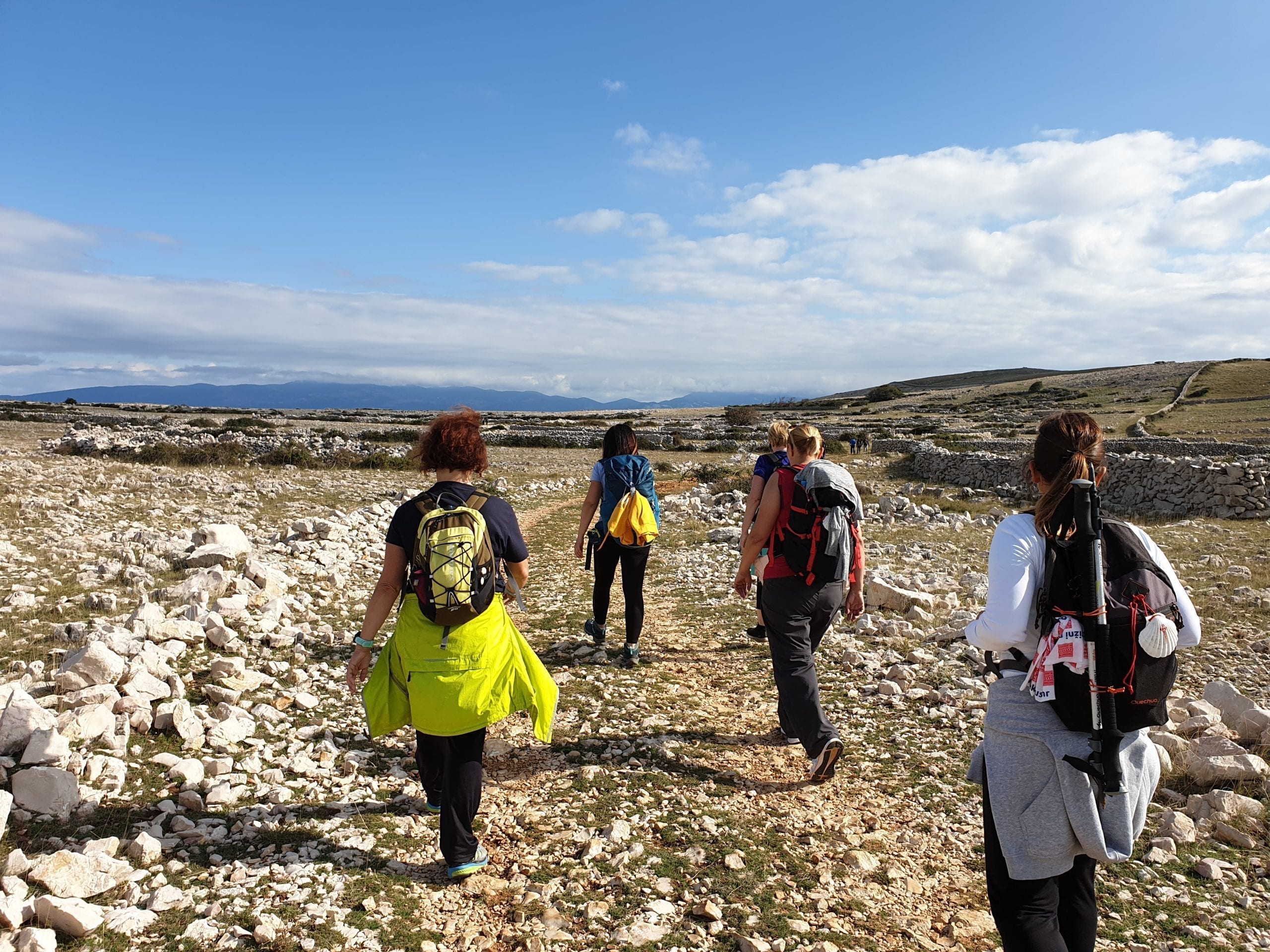
Photo: www.experiencekrk.com
The explanation of the evaluation states, among other things, that the activities related to Camino Krk have little impact on the environment and that the project itself encourages the dispersion of tourists to rural areas and the interior of the island, thus spreading economic benefits and moving away from established sun-sea concepts.
If the activities of tourists, as is the case with this project, do not adversely affect the environment, as a next step and a kind of upgrade, it is proposed that all its stakeholders, at all levels, accept the principles of sustainability in both environmental and economic terms.
“This year there was a significant interest of our guests for active holidays, staying in nature and getting to know the natural, cultural and historical heritage, and Camino Krk met their expectations by adding warmth and spiritual component to this potential-filled tourist story. In further efforts, we will certainly pay significant attention to the comments and suggestions of tourism experts received based on the application to the public call of Skål International and try to further strengthen the cooperation of all project partners,” adds Kovačić.
Recall, the Camino de Santiago or the Way of St. Jacob’s pilgrimage route is about 800 kilometers long and is walked by more than three hundred thousand pilgrims a year. In 1987, the Council of Europe awarded it the title of Main Street of Europe, and in 1993, UNESCO included the Spanish and French parts of the route to the Galician capital, Santiago de Compostela, on the World Heritage List. Road network of St. Jacob leading to one of the world’s three leading pilgrimage centers that inherit the relics of St. James the Apostle is spread all over Europe and is most often marked with a stylized shell – James’ cap, as the (primary) saint’s attribute.
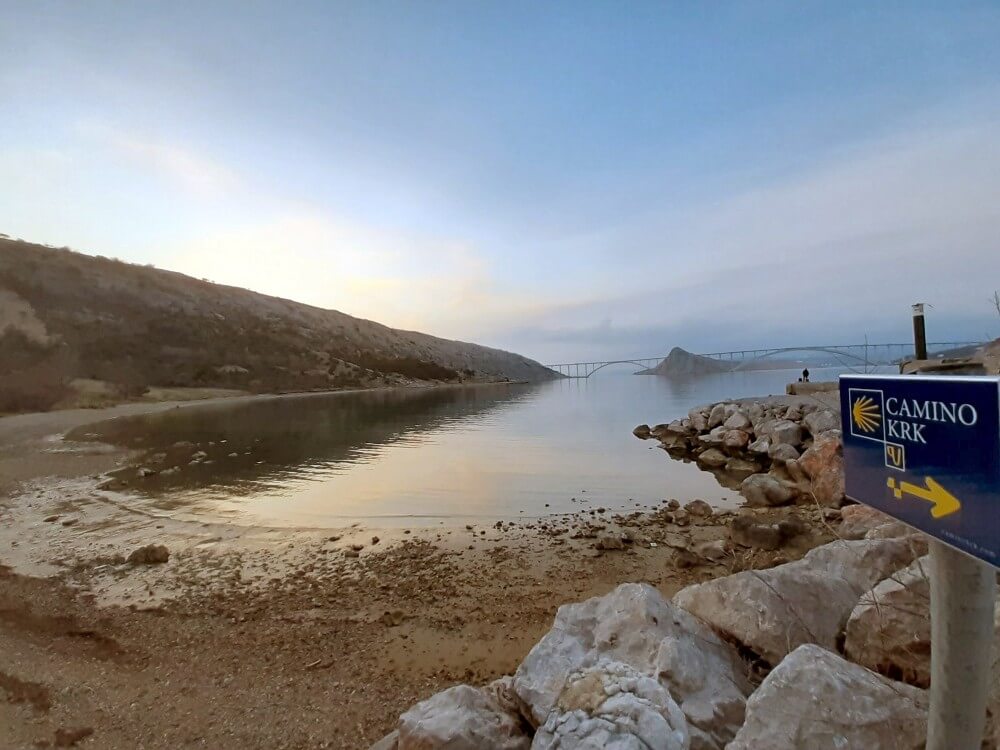
Photo: www.experiencekrk.com
The celebration of the Krk part of the Croatian Camino route took place between 2019 and 2021. Camino Krk is defined as an (all) island circular route, with a total length of more than 150 kilometers, which follows the infrastructure of existing hiking trails. Its starting point is in the island center – the town of Krk, ie the Krk Cathedral, and the final one in the village of Kornić, in the parish church dedicated to the Apostle St. James.
The tour of the Krk route is divided into seven pilgrimage chapters, more precisely seven days needed to truly experience the island’s historical, cultural, and especially sacred heritage immersed in impressive natural environments and unique urban units. For easier navigation on the island of Camino, Krk is marked with recognizable, blue-yellow signs, and in addition to signalization, there is also an interactive digital map that allows tracking the route using a smartphone.
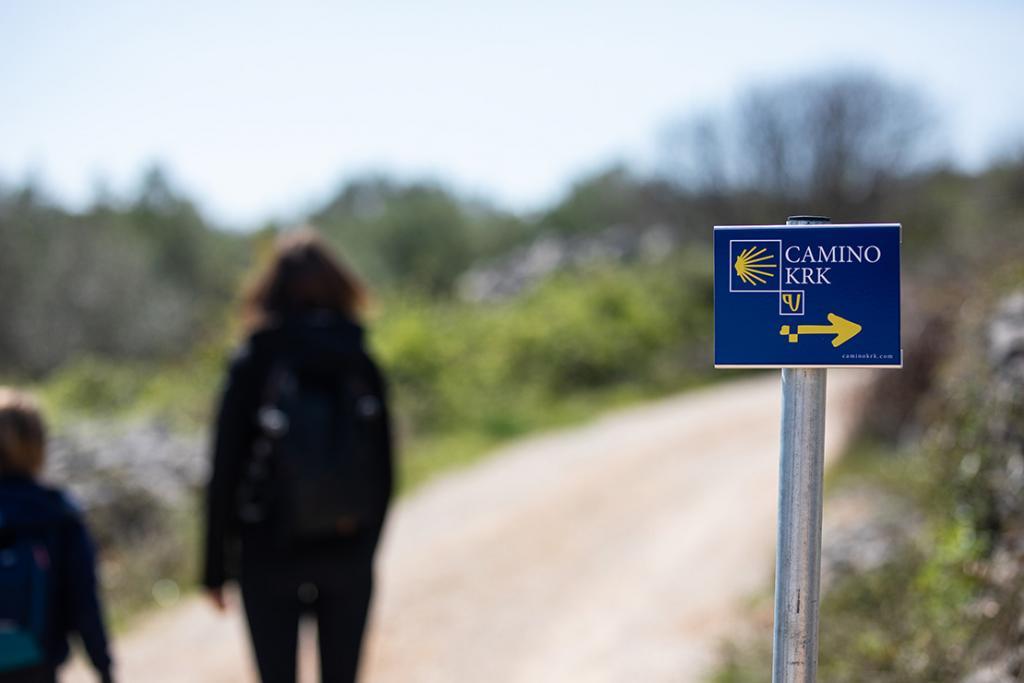
Photo: www.otok-krk.org
This project, since its launch, has attracted significant interest from both domestic and foreign pilgrims, walkers, and other recreationists, mostly Slovenes, Italians, and Austrians, which has intensified in periods affected by strict epidemiological measures.
The Skål International Sustainable Tourism Awards are presented each year to companies, institutions, agencies, and other private and public associations related to tourism.
It is a recognition that, evaluating the effects of sustainable and responsible tourism, contributes to the global visibility of applicants and registered initiatives. By entering the competition, the applicant presents its products and services to globally known experts in the tourism industry, while ensuring significant media visibility.
Skål International unites all branches of the tourism industry and operates through more than 340 clubs with almost 14,000 members in more than 100 countries, while its mission is to promote the development of responsible, sustainable, and universally accessible tourism.
For more, make sure to check out our dedicated travel section.

